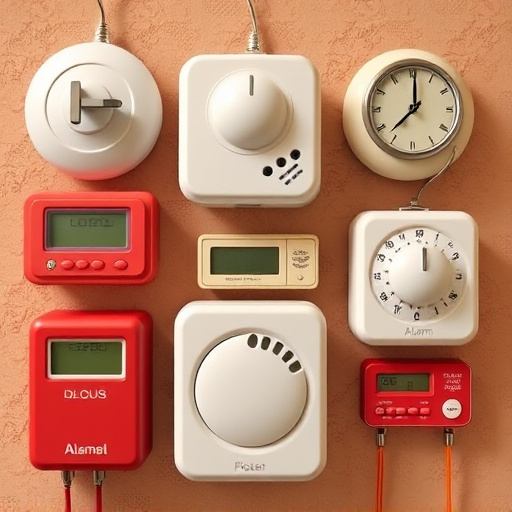Personal alarms with remote control are vital tools for distress situations, offering quick response times through GPS tracking and real-time location monitoring. Designed with portability, durability, and user-friendliness in mind, these devices provide peace of mind without compromising privacy. However, their collection of sensitive data raises ethical concerns that require explicit consent, strict regulations, and respect for individual rights to balance safety benefits against privacy protection.
Personal alarms with remote control are transforming personal safety, offering a powerful tool against distress. This article explores the growing importance of understanding and detecting personal distress signals early. We delve into the integration of technology through tracking devices, highlighting their role in enhancing safety. Key considerations for designing effective personal alarms are discussed, along with ethical implications and privacy concerns surrounding these innovative solutions. By embracing technological advancements, we can ensure faster response times during emergencies.
- Understanding Personal Distress Signals: The Importance of Early Detection
- Integrating Technology: Tracking Devices and Their Role in Safety
- Design Considerations for Personal Alarms with Remote Control
- Ethical Implications and User Privacy Concerns
Understanding Personal Distress Signals: The Importance of Early Detection
Personal distress signals are vital indicators that something is amiss, whether it’s a medical emergency, emotional crisis, or other urgent situations. Understanding and recognizing these signals early can be life-saving. Many individuals, especially those with specific health conditions or at-risk lifestyles, rely on personal alarms with remote control as a safety net. These devices are designed to provide peace of mind by allowing friends, family, or emergency services to detect distress quickly and offer timely assistance.
By incorporating these personal alarms into daily life, users can ensure that help is readily available when needed. Early detection through such innovative tools enables swift action, which can significantly improve outcomes in critical situations. This proactive approach to safety emphasizes the importance of being vigilant without causing undue panic, making it a practical and effective strategy for maintaining well-being.
Integrating Technology: Tracking Devices and Their Role in Safety
In today’s digital era, technology has evolved to play a pivotal role in enhancing personal safety and well-being. One innovative approach that has gained significant traction is the integration of tracking devices into personal distress signals. These compact yet powerful tools are designed to offer individuals an extra layer of security, especially in situations where immediate assistance is required. By incorporating GPS tracking and remote control functionality, personal alarms with these features enable users to quickly summon help from anywhere, ensuring swift response times during emergencies.
The use of such devices goes beyond just sending out alerts; they provide a continuous monitoring system that can detect and track an individual’s location in real-time. This capability is especially valuable for those who frequently find themselves in remote areas or for individuals with specific health conditions that require constant supervision. With the push of a button, users can trigger an alarm signal, prompting nearby emergency services to respond promptly, thereby revolutionizing personal safety measures and giving peace of mind to those who rely on them.
Design Considerations for Personal Alarms with Remote Control
When designing personal alarms with remote control capabilities, several key factors come into play to ensure their effectiveness and user-friendliness. One primary consideration is size and portability; the alarm device should be compact enough to be easily carried or attached to a person’s body, allowing for quick deployment when needed. This often involves lightweight materials and innovative designs that don’t compromise durability.
Another crucial aspect is the range and reliability of remote control signals. Engineers must balance power consumption with signal strength to guarantee consistent connectivity over a reasonable distance. Additionally, incorporating user-friendly interfaces, such as simple controls and clear feedback mechanisms (e.g., LED indicators), enhances the overall usability, ensuring that individuals in distress can activate the alarm promptly and efficiently.
Ethical Implications and User Privacy Concerns
The development and adoption of personal alarms with remote control capabilities, while offering enhanced safety and tracking features, raise significant ethical implications and user privacy concerns. These devices, designed to send alerts and locate individuals in distress, inherently collect and transmit sensitive data about users’ activities, locations, and potentially even their mental states. The ethical dilemma lies in balancing the potential benefits of such technology for personal safety with the right to privacy and autonomy.
User privacy is a paramount concern as these devices could be used without consent or knowledge, leading to surveillance and tracking without individuals being aware. This raises questions about data ownership, security, and purpose. Ethical guidelines and regulations are necessary to ensure that any tracking capabilities are activated only with explicit user consent, data is encrypted and securely stored, and the technology is employed responsibly, respecting individual privacy rights and freedom of movement.
Personal alarms with remote control offer a promising solution for early detection of personal distress signals, enhancing safety in various settings. While technology plays a pivotal role in their effectiveness, ethical considerations and user privacy must be addressed to ensure these devices serve as reliable tools without infringing upon individual autonomy. By carefully navigating design and implementation, we can harness the power of personal alarms with remote control to provide peace of mind and improve overall well-being.
